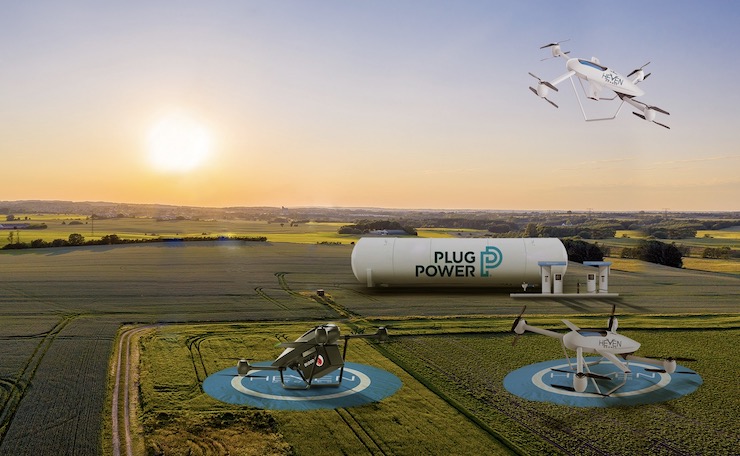Are Hydrogen-Powered Drones the Wave of the Future?

© hevendrones.com
Drones powered by lithium ion batteries have dominated the drone market for well over a decade. But the search for alternatives is beginning to bear fruit. Hydrogen fuel cell batteries offer a robust storage capacity that can allow drones formerly limited to 20 to 30 minutes of continuous flying time to go for 100 minutes or more. They can also accommodate larger payloads. Without the need to replace or recharge batteries so often, hydrogen-powered drones can conduct their flights over longer distances – with greater efficiency and at reduced cost.
One emerging pioneer in the hydrogen fuel drone market is Israel-based HevenDrones, which recently unveiled its H2D55 prototype, the first of three hydrogen-powered drones the company plans to release over the course of 2023. The drones are equipped to perform a wide range of missions — from aerial surveying of real estate to precision pesticide and fertilizer spraying on farms. Because of their extended flying times, the drones are also ideal for conducting long-distance medical supply deliveries and continuous area surveying and rescue operations in natural disaster scenarios.
“We are delighted to bring hydrogen-powered drones to the global market, and we are excited to see the expanding range of use-cases across numerous industries,” HevenDrones CEO Bentzion Levinson said last week. “Not only do actionable drones add immense value to key areas of our economy and society, but we are working to ensure that this value is compounded by reduced carbon emissions and general energy efficiency by using hydrogen.”
HevenDrones is not the only innovative start-up experimenting with hydrogen-powered drones. In the Netherlands, a team at the Delft University of Technology (TU Delft) has developed a vertical take-off and landing (VTOL) drone with 12 motors powered by hydrogen fuel cells. In its maiden flight test conducted last month, the experimental drone remained aloft for an impressive 3.5 hours, far exceeding other hydrogen fuel models.
Unlike the H2D55, TU Delft’s drone is no small aircraft. It weighs 29 pounds and has a wingspan of 9.8 feet, with six motors on each side of the fuselage. According to the research team, with so many motors, up to seven of the drone’s motors can stop working without affecting its operations.
In addition to their operational advantages, hydrogen-powered drones are safer and more sustainable, experts say. Lithium ion batteries burn out faster and are typically disposed of in landfills where they contribute to waste that is non-recyclable. In addition, lithium is an exhaustible precious metal while hydrogen is a naturally occurring gas and the most abundant element in the universe.
The drone project is a collaboration between the team from the Delft University of Technology, the Royal Netherlands Navy, and the Netherlands Coastguard.
|